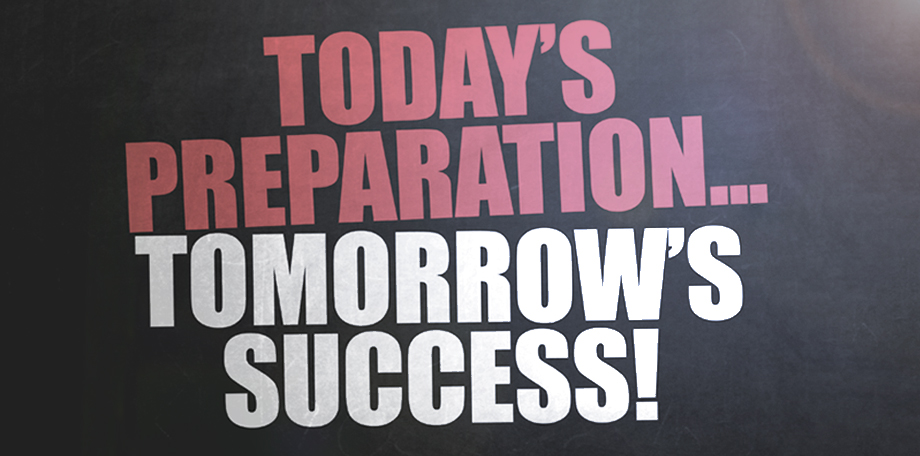You’ve landed the interview for your dream job. You bought a new suit, reviewed your resume and rehearsed a few general interview questions you found online with a friend. But is that enough?
Research shows that you only have five to fifteen minutes to impress during an interview. In fact, over half of interviewers surveyed say they make their decision about a candidate within that time frame. So how do you make sure you make the best first impression in that short time? It takes a lot of work and practice to be memorable for the right reasons.
Mock Interviews
Practicing with mock interviews can be the difference between getting a job or not. There are a lot of resources available today for how to ace an interview such as books, articles, even online interview programs or apps. These can provide job candidates with a pressure-free way to prepare and practice for upcoming job interviews. But none of them actually put you in the same environment as the day of your interview.
That’s why mock interview coaching is such a critical part of interview preparation. This type of targeted career coaching is a simulation of an actual job interview. This valuable role-playing exercise forces you to think on your feet and experience what it’s like to have someone observe everything you do, from non-verbal cues such as your handshake, presence and tone to the quality of your verbal answers.
A mock interview typically lasts about 45 minutes. Prior to the interview, you provide your resume and the position you are seeking so that the coach knows how to evaluate your answers. From the moment you walk in the door in your professional interview attire, you are being scrutinized just as you would be when you attend the real interview.
Here are some areas of evaluation:
- This may seem rudimentary, but are you on-time or late? We recommend arriving at the interview 15 minutes before your scheduled appointment time. After you check in, use any extra time in the waiting area to center yourself and practice breathing techniques.
- How is your emotional state? It can be written all over you in your body language. A coach can assess how you are feeling, whether you are comfortable, your level of anxiety, confidence and likeability.
- Can you answer questions clearly, concisely and effectively for the role you are seeking?
- Can you handle the pressure? A coach will ask you “surprise” questions you could not have possibly prepared for to see how you handle the stress in the moment and how you recover.
You and the coach stay in character during the entire interview. At the end, you are given instant feedback on what you did well, what you didn’t do well and then we discuss how to have more effective answers, sell your personal brand better and reduce stress.
In some cases, we actually script out some answers to the most common questions such as “Tell me about yourself.” Of course, you don’t want to sound like a robot with canned responses, so we discuss taking a bullet point approach and hitting the key points rather than rehearsing an entire answer word for word.
Think You Don’t Need a Mock Interview?
A lot of people think they don’t need to do practice interviews because they’ve had plenty of experience with real interviews during their careers. But individuals overestimate their performance capacity all of the time. They think they excel in interviewing but end up leaving our session learning some critical lessons in how to change their interview style.
A large percentage of our clients only come to us after they have made it to the final round of interviewing repeatedly without receiving any offers. After the mock interview, it often becomes obvious to the client as well as to the coach that, had they come earlier, they would have landed one of the jobs had they been aware of their blind spots. A recent example is Matt, who had been interviewing for months after being laid off from his first job. He was young, so this was only the second time he had ever interviewed in his career. He was under a lot of pressure from his family to get a job but each time he made it to the in-person interview stage, he faltered. After working with him for one session, I got this email a few weeks later (used with permission):
“I met with you a few weeks ago to do a mock interview session and wanted to follow up to let you know that I started a new position last week, thanks in large part to your help. I had a phone interview scheduled for a few hours after our session, and did well enough during that interview to be called in for an in-person interview. They then offered me the job, and even told me that I had “crushed” the interview. I know that I would not have done nearly as well without your help, and that your direction allowed me to present myself in the best possible way. Thanks so much for your help in this process. It was my dream to be a part of this industry, and thanks to you I can now start on this path.”.” – Matt C.
Prepare, Prepare, Prepare
After an interview coaching session with JMA, we give you a list of over 100 questions to prepare for (as well as other supplemental materials to help you improve your interview performance). Those include both general and specific questions that relate to certain jobs, industries and competency levels. Generally speaking, the higher the position you are seeking, the more complex the questions will be.
In addition to that “Tell Me about Yourself” question mentioned earlier, there are a handful of questions that you can safely assume will be asked during an interview so you should prepare for them.
- What are your strengths and weaknesses? Talk up your skills that align with the requirements for the position. Be honest about your weaknesses but include how you are working to improve those skills.
- What are your career goals? Frame your answer to show you are ambitious but focus on what skills you want to develop rather than milestones you want to reach.
- Why do you want to work at our company? This is going to require some research on your part. Understand the company’s mission statement and how it aligns with your own career goals.
- What questions do you have for me? You’ll also be judged on the questions you ask as well as the answers you provide. Ask meaningful, well-researched questions to show you did your homework.
Glassdoor also has company interview questions contributed by site visitors for many companies which can provide some more insight.
The good news is that once you put in the time and work to prepare for interviewing, the benefits are lasting. I tell my clients all of the time that the hours of work you are doing now will last for the rest of your life. If you do this work thoughtfully and with effort the first time, all you’ll need to do to prepare for future interviews is review your notes and strategy.
Related: How to Avoid the Top 9 Interview Blunders
Avoid Interview Faux Pas
Another benefit of interview coaching is the ability to reveal blind spots in your performance level. Unfortunately, it happens all of the time with the simple question of “Why did you leave your last job?” Here’s how some candidates can go wrong:
- You go into way too much detail or are too generic or vague.
- You describe their supervisor in a negative way.
- You lie.
Most interviewers can spot the fluff from a mile away. Don’t waste their time or yours by inventing or embellishing a story. Lying is easy to pick up on during a live interview so when I detect there’s more to the story than what I’m being told, I’ll ask you to share more, or I’ll dig deeper. Once I know exactly what happened and all the details, I can help you craft the story in a way that’s going to be positive and not hinder your next employment opportunity.
The same strategy works for addressing questions you may not know the answers to. The idea is to present a framework so that you can break down the questions in your brain and develop an intelligent response. Instead of panicking, stuttering or responding like a deer in headlights, I coach you on how to be poised while you are processing the steps to derive an answer. There are strategies you can use that will help you delay so that it doesn’t look like you are actually delaying. It’s simply a matter of coaching you to get your brain organized and think more effectively on your feet, which helps to build confidence and produce better answers.
If you are ready to improve your interviewing skills to get a competitive edge and increase your chances of landing that coveted job, learn more about our interview coaching. Don’t go into that next interview cold! Mock interviews is just one job search strategy we cover in our new ebook. Download it to get the rest.




